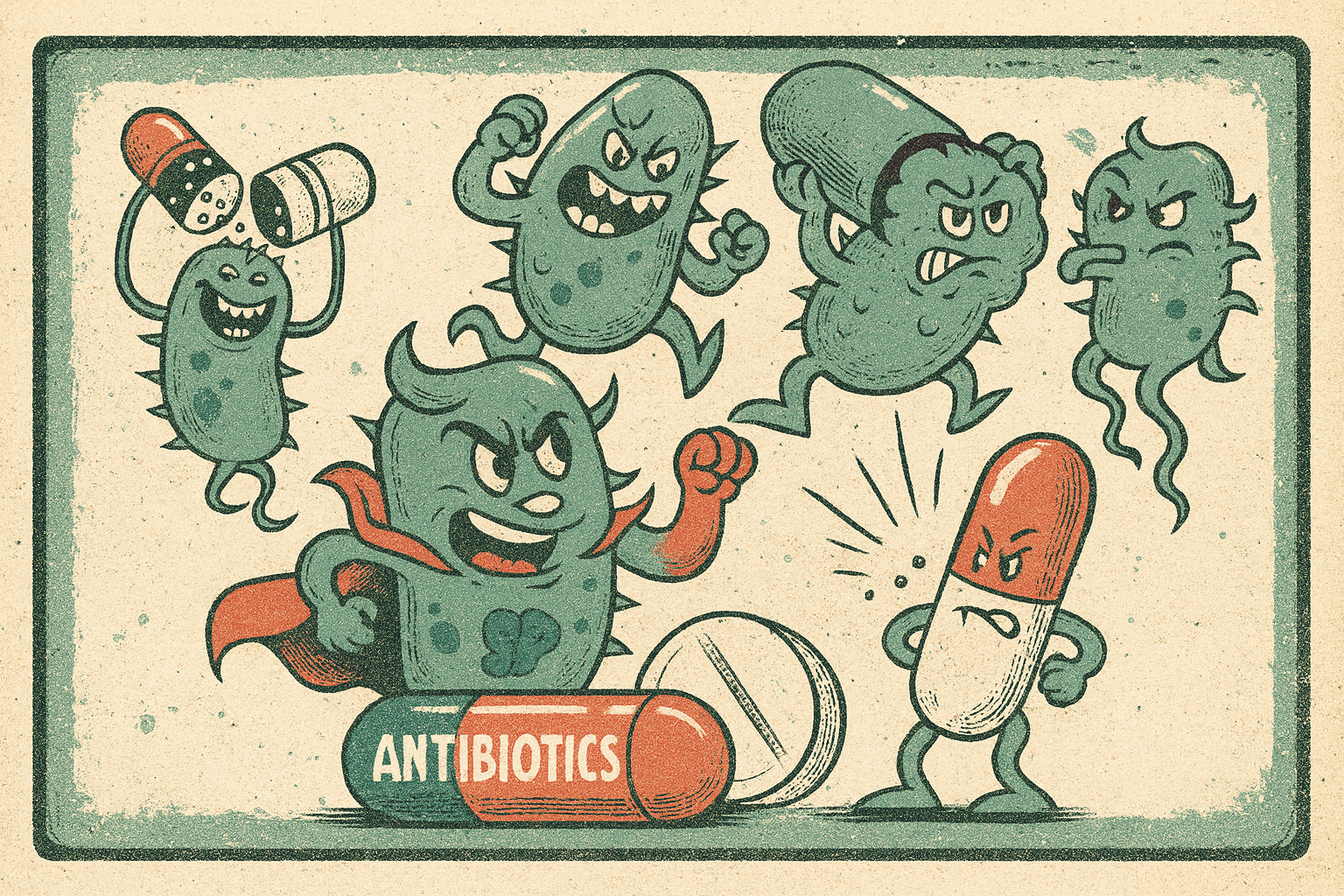It started with what seemed like a simple infection. A small cut on a gardener’s hand that became red and sore. A few decades ago, a short course of antibiotics would have cleared it up easily. But this time, the infection didn’t respond. The bacteria had become resistant. Days turned into weeks in hospital, stronger antibiotics were tried — and hope slowly faded.
This isn’t a story from a distant future. It’s happening now, here in New Zealand and around the world. Antimicrobial resistance — or AMR — is one of the biggest global health challenges of our time. It means bacteria, viruses, fungi, and parasites are developing resistance to the medicines we rely on to treat infections. When these medicines stop working, even minor illnesses or routine surgeries can become life-threatening.
What’s behind the resistance?
Antibiotics and other antimicrobials are powerful tools, but every time they’re used, there’s a small chance some microorganisms survive and adapt. Over time, these survivors multiply and spread — leading to resistant infections.
The World Health Organisation’s theme for this year’s campaign, “Act Now: Protect Our Present, Secure Our Future,” is a call to action. AMR is not a distant threat; it’s growing every year, putting both human and animal health at risk.
Awanui’s laboratories at the frontline
At Awanui, our microbiologists and scientists play a vital role in New Zealand’s response to antimicrobial resistance. Behind the scenes, our scientists are working to identify and monitor resistance patterns across communities and hospitals.
By testing and analysing samples, they help pinpoint which bacteria are becoming resistant — information that’s crucial for doctors when deciding the most effective treatment. This ensures the right antibiotic is given to the right patient, at the right dose, at the right time, and for the right reason.
Our laboratories also collaborate on research and contribute to public health surveillance across the motu. Every test performed, every sample examined, strengthens the national effort to slow the spread of drug-resistant infections and protect patients from harm.
What you can do to make a difference
AMR isn’t just a problem for scientists and healthcare professionals — it’s something we can all help prevent.
Here’s how:
- Use antibiotics wisely. Only take them when prescribed by a healthcare professional, and always complete the full course — even if you feel better. Never keep leftovers “just in case.”
- Prevent infections before they start. Wash your hands regularly, prepare and store kai safely, and keep up to date with vaccinations.
- Travel smart. When overseas, be cautious about food and water sources, and make sure you have the recommended travel vaccinations.
Each small action helps reduce the demand for antimicrobials and slows the development of resistance.
Together, we can protect the future
Antimicrobial resistance threatens to undo decades of medical progress — but it’s not too late to act. With continued innovation and vigilance in laboratories like Awanui’s, and by making smart everyday choices, we can protect ourselves, our whānau, and future generations from the dangers of drug-resistant infections.
Act now. Protect our present. Secure our future.
To find out more about World Antimicrobial Resistance Awareness Week – click here.
